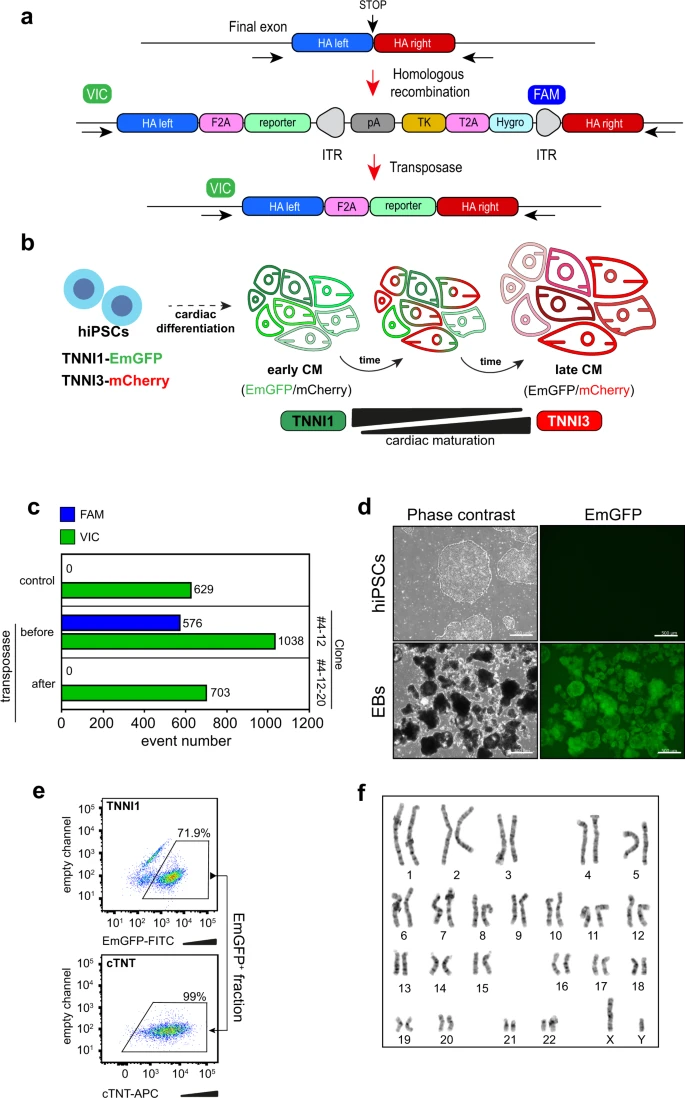
Kyoto University: Successful production of mature cardiomyocytes with iPS: Troponin protein
-Kyoto University iPS Group, Expected Application to Drug Discovery Research-
Kyoto University iPS Research Institute
Using human iPS cells, we succeeded in producing mature cardiomyocytes to the same stage as newborns.
We succeeded in reproduce cells that are close to the actual heart.
It is expected to be applied to regenerative medicine and drug discovery research.
It was published in the English scientific journal Nature Communications on June 21st.
iPS Research Institute:
Associate Professor Yoshinori Yoshida:
Focus on a protein called troponin, which indicates the maturity of cardiomyocytes.
Troponin was observed when cardiomyocytes were prepared from iPS cells.
Reactions with about 9,000 kinds of compounds were confirmed.
ERRγ agonist is effective:
As a result, attention was paid to the compound ERRγ agonist, which is involved in the control of mitochondrial function.
It was found that “it has the effect of forming mature cardiomyocytes with the same structure and metabolic function as newborn babies.”
In addition, the expression of genes involved in maturity was also increased.
Kyoto Shimbun
https://www.kyoto-np.co.jp/articles/-/585299
Produce mature cardiomyocytes from human iPS cells to neonatal level
point
The low maturity of human iPS cell-derived cardiomyocytes has been a problem so far.
This time, a compound that promotes cardiomyocyte maturation (ERRγ agonist Note 2)) was identified by compound screening Note 1).
Cardiomyocytes derived from human iPS cells treated with ERRγ agonists have a T-tubule structure Note 3).
Structurally, metabolically and electrophysiologically matured to levels comparable to neonatal cardiomyocytes.
By using this method, neonatal-level cardiomyocytes can be efficiently obtained in a short period of time.
It is expected to be applied to drug discovery research, pathological model, cell therapy, etc. in the future.
CiRA | Center for iPS Cell Research and Application, Kyoto University
https://www.cira.kyoto-u.ac.jp/j/pressrelease/news/210621-180000.html
ERRγ enhances cardiac maturation with T-tubule formation in human iPSC-derived cardiomyocytes
Abstract
One of the earliest maturation steps in cardiomyocytes (CMs)
is the sarcomere protein isoform switch between TNNI1 and TNNI3 (fetal and neonatal/adult troponin I).
Here, we generate human induced pluripotent stem cells (hiPSCs)
carrying a TNNI1EmGFP and TNNI3mCherry double reporter to monitor and isolate mature sub-populations during cardiac differentiation.
Extensive drug screening
identifies two compounds, an estrogen-related receptor gamma (ERRγ) agonist and an S-phase kinase-associated protein 2 inhibitor, that enhances cardiac maturation and a significant change to TNNI3 expression.Expression, morphological, functional, and molecular analyses indicate that
hiPSC-CMs treated with the ERRγ agonist show a larger cell size, longer sarcomere length, the presence of transverse tubules, and enhanced metabolic function and contractile and electrical properties.
Here, we show that
ERRγ-treated hiPSC-CMs have a mature cellular property consistent with neonatal CMs and are useful for disease modeling and regenerative medicine.
Nature Communications